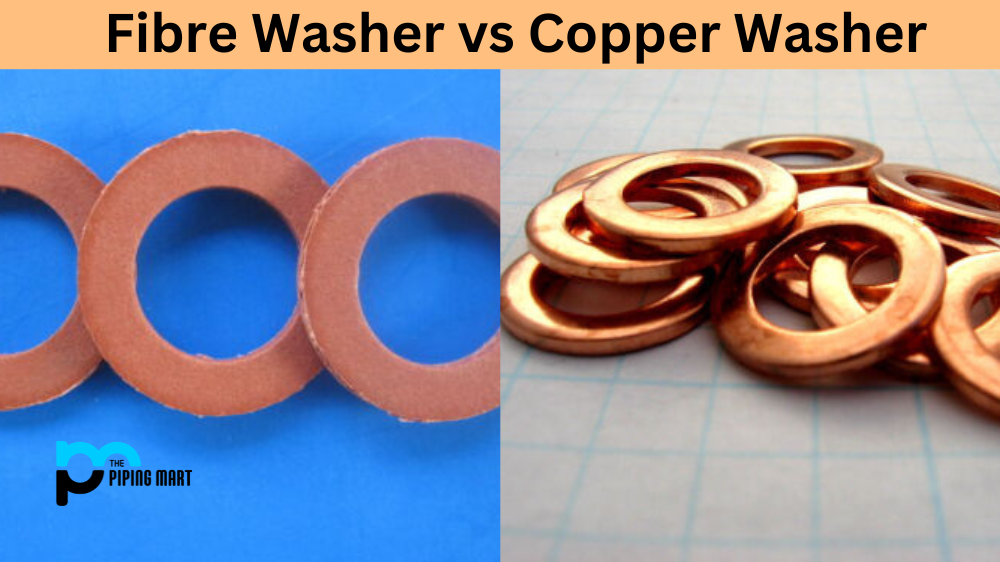Fiber Washer vs Copper Washer – What’s the Difference
| 2:23 pm


Choosing the right washer for a particular application can be a tricky task. When it comes to selecting a washer, there are various factors that you need to consider, such as strength, temperature tolerance, and corrosion resistance, among others. Fibre and copper washers are quite popular among the different types available in the market. In this blog post, we’ll discuss the pros and cons of fibre and copper washers and help you decide which one to choose.
What is Fiber Washer?
Fiber washer may sound like a complex term, but it is actually quite simple. It is a washer made of fiber, usually used as a sealant. They’re typically used in applications where a tight, leak-free seal is crucial, like plumbing or automotive repair. They’re also more cost-effective than their metal counterparts, making them a popular choice in many industries. The fiber washer’s unique ability to compress under pressure helps ensure a tight, secure fit and a successful seal. Despite its humble appearance, the fiber washer plays a critical role in preventing leaks and maintaining the longevity of machinery.
What is Copper Washer?
Copper washer: have you ever come across this term? Well, it’s a small but mighty component used in plumbing and automotive applications. Copper washers are basically thin and flat rings made of copper that help to seal a joint between two surfaces. For instance, they play a vital role in preventing fluid leakage in pipes or hoses. They’re also used in vehicles to prevent oil and fuel leaks on engines and transmissions. With its remarkable heat conductivity, copper has become an essential material for washers. In addition, copper is non-reactive, so it doesn’t corrode or rust, making it ideal for use in harsh environments. So next time you see a copper washer, remember its significance and the role it plays in ensuring leak-free performance.
Difference Between Fiber Washer and Copper Washer
- Fibre washers are made from synthetic materials, such as nylon or polyester.
- Copper washers are made from, well, copper.
- Fibre washers are typically cheaper than copper washers.
- Copper washers are better at conducting heat than fibre washers.
- Copper washers are more durable than fibre washers and can be used multiple times.
Conclusion
Choosing the right washer for a particular application is all about understanding the specific requirements of that application. When deciding between fibre washers and copper washers, you need to factor in the pressure, temperature, and chemical exposure to which the washer will be subjected. If cost is a concern and the application is relatively inexpensive, fibre washers might be the way to go. On the other hand, copper washers are a better choice if the application involves high temperatures, pressures, and chemical exposure. By understanding your requirements and the pros and cons of fibre and copper washers, you can decide which one to choose for your application.


Hey, I’m Krutik, a casual blogger expert in the metal industry. I am passionate about providing valuable information to my readers. With a background in engineering and construction, I like playing Cricket & watching Netflix shows in my free time. Thank you for visiting my blog, and I hope you find my information helpful!